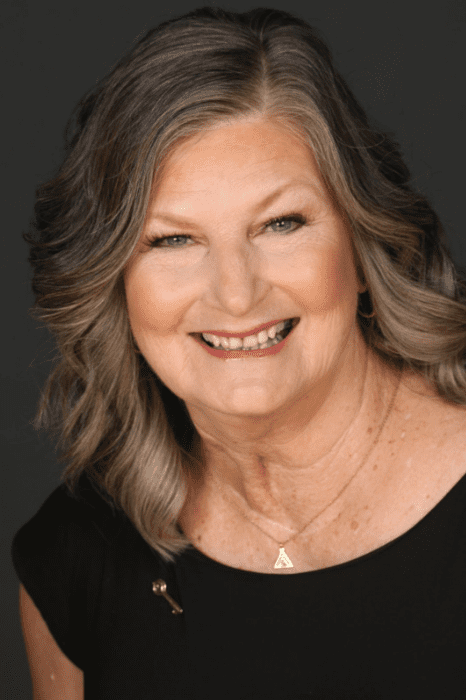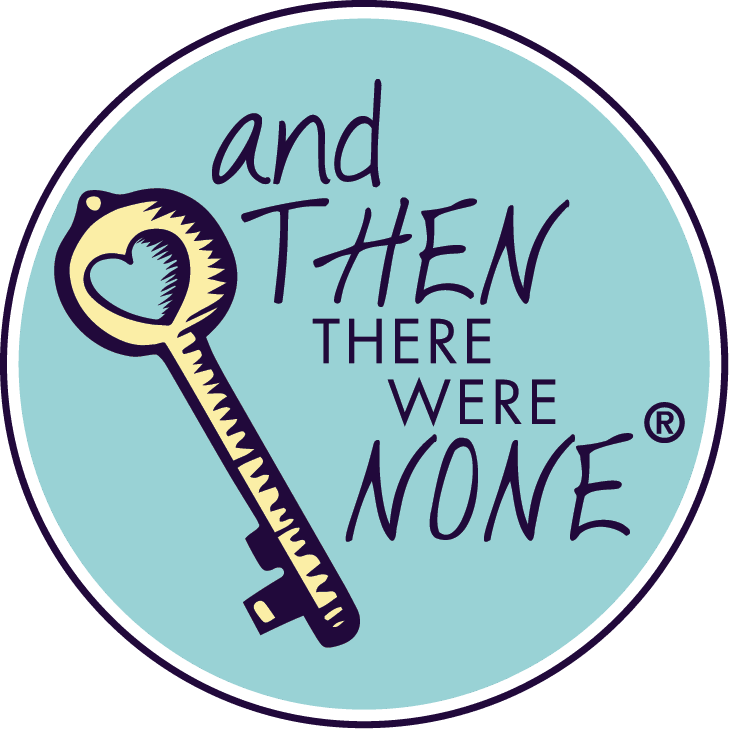
Barbara Beute with Dave Franco
THERE WAS NO LIGHT IN THE WOMEN’S HEALTH CLINIC WHERE I WORKED—just one; over me. Every other room or hallway in the place was still and dark as night. After hours was a good time for me to get work done, I thought, the kind that builds up after a day of distractions, like chatty coworkers, or vendors coming in and out, or any number of fires to deal with.

But it was those moments in the clinic that seemed to magnify all that had been swirling around my head for about three years; tormenting thoughts that found me alone in my apartment reaching again and again for different bottles that seemed to egg me on to empty them into my body. The thoughts that I tried to drown kept reminding me of the ride down to Orlando, Florida, a few years earlier when I was 20 years old, as I laid in the back seat of our family Chevy. My mom and sister were in the front talking about what a loser Kai, my boyfriend, was. “There’s no way she should be tied to him for the rest of her life,” they said in hushed tones. He had beaten me several times and showed himself to be Mr. Wrong in every way. However, he, too, wanted his baby aborted.
But it was those moments in the clinic that seemed to magnify all that had been swirling around my head for about three years; tormenting thoughts that found me alone in my apartment reaching again and again for different bottles that seemed to egg me on to empty them into my body. The thoughts that I tried to drown kept reminding me of the ride down to Orlando, Florida, a few years earlier when I was 20 years old, as I laid in the back seat of our family Chevy. My mom and sister were in the front talking about what a loser Kai, my boyfriend, was. “There’s no way she should be tied to him for the rest of her life,” they said in hushed tones. He had beaten me several times and showed himself to be Mr. Wrong in every way. However, he, too, wanted his baby aborted.
Feeling defeated, I let them take me to the abortionist trusting that if they all believed the baby had to go, then it must be OK. But it wasn’t. From that day forward, there seemed to be a steady IV drip of liquid guilt into my system.
At 22, I had taken a medical assistant course and one of the requirements for certification was a two-week internship at a medical facility. When the instructor handed us a list of places to inquire for the internship, I scanned it until I came across the women’s health clinic. “Hmm,” I said to myself, “perhaps I can advocate for the women getting abortions. I know it would have done me a lot of good.”
I was so naïve.
After my two-week stint, they offered me a fulltime job and I accepted. I started out doing what I hoped to do; comforting and caring for the women who came in. But then I was asked to do more ground-zero tasks. Soon I was working the POC room and pouring the contents of the uterus after an abortion into a strainer, and that was when my conscience couldn’t hold the weight of it. I saw things that were not for me, or any human, to see. I saw the building blocks; the holy pieces that God uses to knit babies together—in a destroyed state. The more I saw it, the more I felt that I had somehow walked beyond a DO NOT TRESPASS sign. Don’t look. This is not for you. You will never be the same. It put picture to my deed. I saw what I had done to my baby—and what I was helping to have done to other babies.
That is why the late night in the women’s health clinic turned out to be anything but quiet. That was the night that I began to hear cries from down the empty, dark hallways; infant babies crying out for someone to come and comfort and save them. The smell of blood, like new metal, filled the air. Am I going crazy?
“We don’t have babies here!” I kept reassuring myself. “Nobody is alive down there.”
Not alive. Our clinic was a culture of death. I never felt so wrong about anything in my life. I knew my days were numbered. I wanted out.
It wasn’t long after that that my sister called to say she was pregnant. I was so excited that I bought her a book on fetal development. Without thinking, I showed a couple of ladies in the clinic pictures from the book and my supervisor got wind of it.
“I need to talk to you,” she said.
I could tell from her tone that I had done something wrong. “We don’t show the miracle of life around here,” she said coldly. “Your job is to sell abortions. That was a very careless thing you did.”
I had thought there was, even in a place where abortions were performed, room to marvel at life. But there wasn’t. Sell abortions?
I gave them my resignation.
Nearly forty years passed and my sorrow over what I had done and became a part of in the clinic, never left me. I carried it with me until I confided in my pastor all that was swirling around my heart. He gave me Unplanned, a book by Abby Johnson. It led me to Abby’s associate, Meg Weber, Client Manager of Abby’s NPO, And Then There Were None. After letting me empty myself to her for an hour, she invited me to one of their healing retreats.
In 40 years, it was the first time I felt hopeful that something in me was about to change.
The process was painful and beautiful. But like the first bolt of light to reach a dungeon floor, something transformative began to happen and is happening still. Healing began. Among many moments of change, I asked my baby to forgive me. Then I asked all the children that were aborted while I was at the clinic to forgive me. Then, I asked Jesus to forgive and heal me.
Finally, I have forgiven myself—because God has. I don’t think I would have truly known his forgiveness without Abby and my tribe at the retreat. After all that I have seen, only something as powerful as God’s love could take it away.
